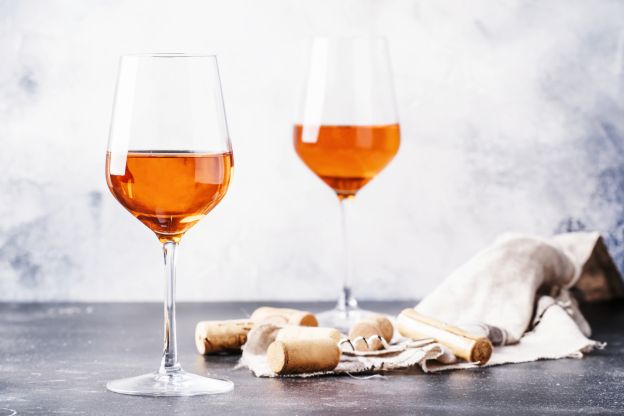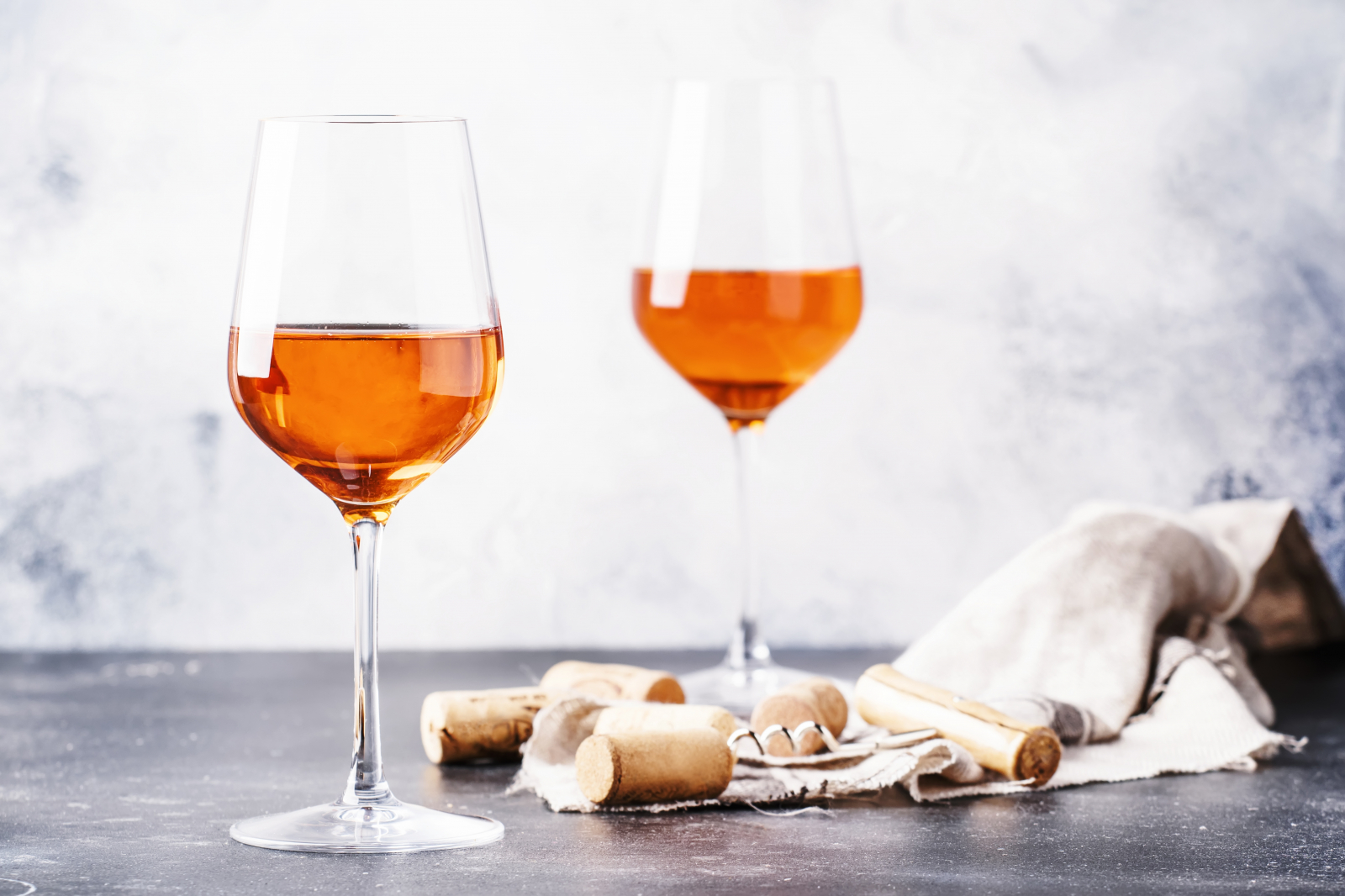Move Over, Rosé. Orange Wine is the Summer 2020 Drink We Need
Are you a wine person? Then you've probably tasted red, white and rosé varieties. But what about orange wine? What is it, and why should you add it to your summer drink list?

Orange Wine
Despite orange wine having made something of a comeback in the past 20 years, most of us have never encountered it. What exactly is orange wine anyway, and how does it taste? Let's get to the bottom of this mystery beverage.
Appearance
As the name suggests, orange wines have a rich color that can vary from golden-straw yellow to deep orange, which comes from the lignin in grapeseeds. It is mostly cloudy and is therefore often mistakenly used as a synonym for natural wines, which are also cloudy because they don't use additives to enhance their color.
Production
Orange wine comes from white grapes but is made like red wine. For example, when making red wine the skin of the grapes is not removed before the fermentation process, which is what gives it its color. For white wine, only the juice is fermented, and the skins are removed and discarded.
Today, orange wine is created from fermented mash, as it was done thousands of years ago in Georgia (the country, not the state), where it originated. Mash fermentation is the process of fermenting all the components of berries together, including the juice, skin, seeds and sometimes even the stems.
Georgians stored their wine in clay amphorae, which were then buried in the ground. Today, some wine producers continue this practice, but most have transitioned to installing them in vatting cellars. Regardless of where they are stored, letting it ferment in clay pots gives the wine its unique natural character. And the wine can be left to ferment anywhere from four days to over a year.
Taste
So now you now how it's made, but more importantly, how does orange wine taste?
It actually tastes different than any other wine. Because it is made with few to no additives and sometimes no yeast, it can end up with a slightly sour and nutty flavor profile, due to oxidation. According to VinePair, "generally speaking, orange wines display mild flavors of stone fruit, like peaches; tea flavors, like strong oolong; and an impression of honey, without actually being sweet."
Many wine experts also say that you should probably be sitting down when you try your first orange wine because its flavor is so bold and intense. It's recommended to serve the wine at around 55°F, with a slightly lower temperature being acceptable in warm weather.
Food Pairing
If you're wondering whether orange wine pairs well with food, the answer is yes! It can even stand in for red wine when accompanying red meats or bold, spicy and deep-flavored dishes, such as hot Indian curries, Korean bibimbap and Moroccan tagines. The stronger the food flavors, the better.
Summer 2020 Drink of Choice
Given that 2020 has seen some of the most incredible (re: scary, pivotal) events that some of us have experienced in our lifetimes, it only seems fitting to set aside our habitual rosé for something bolder and stronger this summer. Just remember if you've never tried it, make sure you're sitting down when you do.
Hungry for more? Why is there an indent at the base of your wine bottles?
More steaming articles
 14 amazing ways to make chocolate chip...
14 amazing ways to make chocolate chip...
 Martha Stewart and Snoop Dogg Recreated...
Martha Stewart and Snoop Dogg Recreated...
 Parents can't stop sharing this...
Parents can't stop sharing this...
Chef Tips and Tricks
This is the only thing you'll want to drink this summer.
Ingredients:
2 tsp. of brown sugar
1/2 a lime
1/5 cup of Brazilian Cachaca


Comment on this article